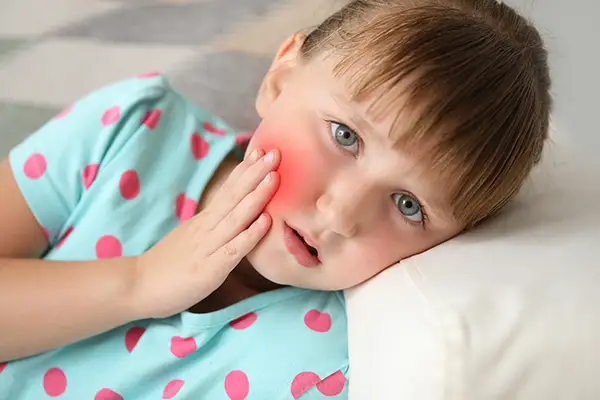Medical Emergencies - What Parents Need to Know
Posted on 6/16/2025 by NC Pediatric Dentisty |
 As a parent, your child's health and safety are your top priorities. While childhood is generally a time of fun and laughter, there may be times when your child experiences a medical emergency. Knowing what to do in these situations can make all the difference. As a parent, your child's health and safety are your top priorities. While childhood is generally a time of fun and laughter, there may be times when your child experiences a medical emergency. Knowing what to do in these situations can make all the difference.
This article will discuss common medical emergencies in children and provide guidance on how to respond effectively. Remember, every situation is unique, so it is essential to seek professional medical help whenever you are unsure or concerned.
Common Childhood Medical Emergencies
Several medical emergencies can occur in children, each requiring specific actions. Here are some of the most common:
| • |
Seizures: These involve uncontrolled electrical activity in the brain, causing convulsions, staring spells, and loss of consciousness. If your child has a seizure, stay calm and ensure they are safe from injury. Time the seizure and call emergency services if it lasts longer than five minutes or if your child has other concerning symptoms like fever, difficulty breathing, or vomiting. |
| • |
High Fever: While fevers are common in children, high fevers (over 103°F) can be dangerous. If your child has a high fever, keep them cool and hydrated. Give them over-the-counter fever medication according to the dosage instructions. If the fever does not come down or your child exhibits other worrisome symptoms, seek medical attention. |
| • |
Asthma Attacks: Children with asthma experience wheezing, coughing, and difficulty breathing during attacks. If your child has asthma, keep their rescue inhaler readily available and administer it as prescribed. Sit your child upright in a calm environment and call emergency services if their breathing difficulties worsen or they don't respond to the inhaler. |
| • |
Choking: This occurs when an object lodges in the airway, obstructing breathing. If your child is choking, perform the Heimlich maneuver or chest thrusts, depending on their age. Call emergency services immediately and continue administering first aid until help arrives. |
| • |
Head Injuries: Head injuries can range from minor bumps to severe concussions. If your child suffers a head injury, monitor them closely for changes in behavior, vomiting, loss of consciousness, or other concerning symptoms. Seek medical attention if any of these symptoms appear. |
Responding to Medical Emergencies
In any medical emergency, staying calm and taking decisive action is crucial. Here are some general tips for responding effectively:
| • |
Assess the situation: Quickly evaluate the situation and identify the nature of the emergency. |
| • |
Call for help: Don't hesitate to call emergency services, even if you are unsure about the severity of the situation. |
| • |
Provide first aid: If you are trained in first aid, administer appropriate care while waiting for professional help. |
| • |
Stay calm and reassure your child: This will help them remain calm and cooperate with your actions. |
| • |
Provide information to medical personnel: When help arrives, clearly explain the situation and any steps you have already taken. |
Preparing for Emergencies
While emergencies can be unpredictable, being prepared can make a significant difference. Consider taking these steps:
| • |
Learn basic first aid: Taking a first aid course can equip you with the skills and knowledge to respond effectively in various medical emergencies. |
| • |
Keep emergency contact information readily available: Have the numbers for your pediatrician, emergency services, and poison control readily available in a visible location. |
| • |
Compile a medical information sheet: Include your child's medical history, allergies, medications, and emergency contact information on a card or document easily accessible in case of an emergency. |
| • |
Talk to your child about safety: Explain basic safety rules to your child and encourage them to come to you if they experience any discomfort or injury. |
Remember, even with careful preparation, medical emergencies can happen. By staying informed and knowing how to respond, you can play a crucial role in ensuring your child's safety and well-being in such situations.
|
|